The internet has changed a lot in the last ten years. Many people still use blogs and will eventually stay around for a long time, but the world has progressed, and new social media platforms have been created. Many people would like to start a blog nowadays because the opportunity is bigger than ever before. Here are some best blogging platforms for 2023.
1. WordPress.com
WordPress.com is the leading blogging platform. WordPress is currently being used by a third of all websites and by over 70 million people. If you want to start your blog, this is the best way to do it without worrying about hosting or maintenance, as it's included in the price. It features many tools, including one-click installs for popular plugins, so you can do anything you want with your blog.

2. Blogger.com
Google also owns bloggers, so it's one of the most popular blog platforms. It's not as easy as WordPress, but it has many features. For example, you can have multiple blogs on one domain and create your blog design from scratch, and the platform has the best mobile app for blogging. In addition to all these things, Blogger is completely free and open source.
3. Weebly
Weebly is an easy-to-use blog creation tool that doesn't require any technical knowledge from the user. The platform is entirely free to use, and it has a lot of free templates to choose from. The design interface is amazing, and creating something amazing with your blog is very simple. To add plugins or other features, you can do that using the appropriate tools.
4. Tumblr
Tumblr is one of the most popular blogging platforms. It is easy to set up, and many magical themes are available. It's also easy to find related content using the Tumblr search tool, which helps you find new people who share similar interests as you do. The user interface is well-made and straightforward, even if you're a newbie.
5. Squarespace
Squarespace is one of the most expensive blogging platforms on this list, but it has a price for that. With unique templates and beautiful designs, Squarespace gives you the best blogging experience possible. The platform also gives you everything you need to start blogging in less than 60 seconds. You can have multiple blogs on one domain and share them all around the internet easily.
6. Disqus
Disqus is a great platform to use if you want to add comments to your blog quickly. It has many interesting features, which are the best quality comments on the web and make moderating easier. It has many extra features, like community management tools, analytics data, and more.
7. Bluehost Hosting
Bluehost is one of the best blog hosting providers, as it has many useful features. The first thing you get when you create a blog on Bluehost is 100 GB for free with your first blog, which means you don't have to pay for anything until you require it. You can also install any plugins or add-ons as your needs change. The platform also gives you a premium domain feature, which allows you to create unlimited websites on one domain.
8. LinkedIn Pulse
The LinkedIn Pulse platform is good for business, but it's also perfect for bloggers. LinkedIn Pulse makes your blog easy to read by automatically adding a related and trending header, so you don't have to do this manually. Using LinkedIn Pulse also shows you what others like and comment about in your blog. It will also show you the most important trends on the web, which is very useful for any new blogger.

9. Pixpa
Pixpa is an exciting platform because it allows you to upload images, which are then edited with filters and effects. Every time you publish a blog post, it mirrors the same post on your website and social media profiles, so these are all the things that appear on the blog. The platform has many features that give you better control over your photos' appearance when they get published.
10. LiveJournal
The LiveJournal platform is similar to Tumblr, but it's more complicated. You can have multiple blogs on one domain and edit them yourself. It's also easier to manage than Tumblr because you can do many things like theme changing and add-ons easier. There are a lot of interesting features on the LiveJournal platform that make blogging fun, so if you want something free, this is the best choice for you.
There are many other great platforms that you can use to create your blog, but the ones listed above are the best. These have many unique features and are very easy to use. WordPress is currently the leading platform with everything you need, while others like Blogger and Tumblr focus on usability. These platforms allow you to have multiple blogs on one domain; if you want, you can create a new niche blog monthly.






















.png)



.svg)




